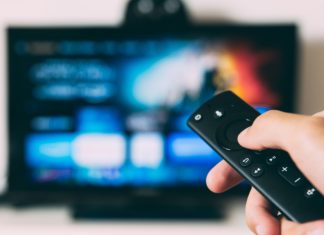GOOGLE, AMAZON AND SAMSUNG TOP LIST OF THE WORLD’S MOST DYNAMIC BRANDS
- Existing brand equity measures are outdated for the new world
- IPG Mediabrands, in partnership with The Wharton School at the University of Pennsylvania, has created a new brand measure called a “dynamic score”
- Brands with a higher dynamic score enjoy better revenue growth as compared to brands with a lower dynamic score
- The dynamic score is made up of 4 dimensions – Agility, Responsiveness, Innovation and Sociability
- The D100 is determined by ranking the top 100 dynamic scores of brands from across the globe
CANNES, France – IPG Mediabrands, the media holding arm of Interpublic Group (NYSE:IPG), in partnership with Jonah Berger, Associate Professor, The Wharton School at The University of Pennsylvania and New York Times best-selling author ofContagious: Why Things Catch On, has launched the inaugural D100, ranking the 100 most dynamic companies in the world using new world metrics.
A New World. A New Way. Welcome to the #D100
To construct the D100, over 10,000 consumers were surveyed across four global regions in five major markets including the United States, United Kingdom, Germany, China, and India. Consumers were asked questions on both global brands and market specific brands; in total over 1,200 brands were examined. Global brands were defined by large, multinationals that had at least some presence in multiple key markets (e.g., Coca-Cola, Nike and BMW). Market-specific brands were smaller brands that may only be present in a single market (e.g., Royal Mail – UK or Hajmola – India).
The Top 10 Most Dynamic Brands In The World Are:
- Amazon
- Samsung
- Nike
- Intel
- NASA
- BMW
- Mercedes-Benz
- Audi
- Lenovo
“The D100, along with the data that we’ve collected to identify the world’s most dynamic brands is incredible. The dynamic score and new world brand metrics that we’ve defined enables IPG Mediabrands to help brands to become truly dynamic and evolve at the pace of consumers,” says Henry Tajer, Global CEO at IPG Mediabrands.
The dynamic score is comprised of four key dimensions to calculate and determine brand dynamism, as opposed to traditional “old world” measures, such as brand awareness and brand value.
The D100 marks the first time that brand success is measured with new world metrics, specifically:
- AGILITY: the degree to which brands adapt to changing market conditions.
- RESPONSIVENESS: the degree to which a brand listens and responds to customer needs and feedback.
- INNOVATION: the degree to which brands leverage new technology and creates innovative products and services
- SOCIABILITY: How large and engaged a brand’s audience is on social media.
Data on the first three dimensions (Agility, Responsiveness, and Innovation) were collected through consumer perceptions and the fourth, Sociability, was collected through social media data across Facebook, Twitter and Weibo. Each dimension was z-scored and then averaged together to form a brand’s overall dynamic score.
Jonah Berger, Associate Professor of Marketing at the University of Pennsylvania said, “In partnership with IPG Mediabrands, we applied a rigorous and comprehensive methodology that showcases which brands are driving the future. Ultimately, it is not just about being relevant today; it’s about being transformative tomorrow.”
At its core, the research shows that the world has fundamentally changed. Being the largest and oldest brand used to guarantee continued success. Yet, in today’s fast-paced, socially connected marketplace, it is not just a brand new world, it is a new brand world, with these four metrics serving as the underpinnings for brand vitality and perpetual growth.
Throughout the D100, there is a clear and positive relationship between the dynamic score and company’s performance. Dynamic brands, defined as brands that scored one standard deviation above the mean in dynamism, had 2.7% higher percentage Q4 revenue growth from 2014 to 2015. While this percentage may not seem significant on its own, the average revenue growth across brands, generally, is only 4.4%. The relationship between dynamism and revenue growth persists even when controlling for more traditional brand metrics such as brand awareness and size. This suggests that brand dynamism drives future performance above and beyond more traditional brand measures. The relationship between dynamism and revenue growth is particularly driven by the Agility dimension and somewhat by the Sociability dimension. Agile companies also have a higher market cap.
Mat Baxter, Global Chief Strategy and Creative Officer said, “This is a hugely important study because it clearly demonstrates the urgent need for brands to move away from outdated brand measures and embrace the dynamic score – something that we’ve proven is tightly correlated with the future revenue growth and momentum of companies.”
The inaugural D100 Award was awarded to Google, the world’s most dynamic company and presented to Eric Schmidt, Executive Chairman, Alphabet Inc. (Google’s newly formed parent company) at the 63rd Cannes Lions International Festival of Creativity in Cannes France.
For additional information on how a particular brands performed or to access the complete list of the rankings, please visit www.thed100.com.
About IPG Medibrands
IPG Mediabrands was founded by Interpublic Group (NYSE: IPG) in 2007 to manage all of its global media related assets. Today, we manage over $37 billion in marketing investment on behalf of our clients, employing over 8,500 marketing communication specialists in more than 130 countries.
IPG Mediabrands is a new world agency group designed with dynamic marketing at its core. Our speed, agility and data smarts ensure we continue to create growth for many of the world’s biggest brands. IPG Mediabrands’ network of agencies includes UM, Initiative, BPN and Orion Holdings as well specialty business units including Magna Global, Cadreon, Ansible, Society, Reprise, Rapport and the IPG Media Lab.
IPG Mediabrands. Dynamic by Design.









